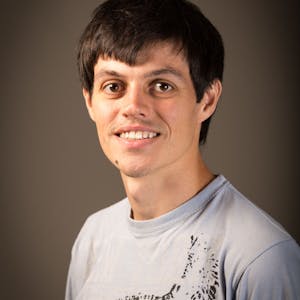Thank you, and you can find my slide at ntfu.me. And then we'll jump into the first question, and that's from, well, there's actually two people that want to ask if you use SlideDev. Yes, I do. Yeah, yeah, yeah. So big shout out to SlideDev. I think out of the 10 presentations I've seen today, like, 9 have probably been SlideDev, and it's looking pretty sharp. Oh, good to hear. All right. Next question. Do you think making the library more agnostic requires deeper and interdisciplinary knowledge? I think it does. I mean, when it becomes agnostic, it becomes more challenging than, like, you hardcore everything, right? Like, if you take it very extreme, you're hard-coded, and you're kind of providing a loose, like, there's a transition between hard-coded and very agnostic, and you have loose integrations or more coupled integrations. And I think that, in the agnostic way, is way harder to achieve, where I think I would recommend to go with a progressive approach, is that you can first do something that works, and then you can later, based on the feedback from the community or based on the feedback on the usage, and you have, like, a better foundation to see what can be better unified, and then you can progressively go into that approach to have a wider audience. Yeah, that's really hard to do, to make anything for a framework you don't know by heart, yeah. So, yeah, really hard to do, but if you have the community helping, that helps. Helping open source. A question from Anonymous. Any thoughts on Node.js versus other runtimes? If you had to bet on a single runtime, which one would it be? Ah, that's a very interesting thing, because in ARM.js, what we do is we try to build libraries that works for every runtime. So, because we all follow the same, like, IcecreamWinterCG, and also the same efforts to have a standardized JavaScript runtime interface, so we could have libraries that are working on multiple runtimes, and supposedly, they should work together as well. So I would say as a library author's perspective, I would serve a larger audience as possible, so I want my tools to work on any runtime. So everyone with a different opinion, with different specific needs, they can still benefit from the work we've done. Yeah, but you're trying to make tools for everyone, but it's open source and there's no financial incentive for doing that, right? It's just your own desire. I mean, it really depends, like, how do you connect with the financial incentive. I would say that's... I mean, I mostly build things with passion, and I don't really care about the business side, because I think... I would consider that that's another job, you know. It's not a part of it. But I mean, as a... For Nuxt, it's like, our incentive is Nuxt is a company, but we sell product on top of Nuxt. But we want to keep Nuxt as a neutral, as an open source project. And as Nuxt get a more stronger community, and also including the downstream, like Vue and Vite, they will all benefit back to the company, their product.




















Comments